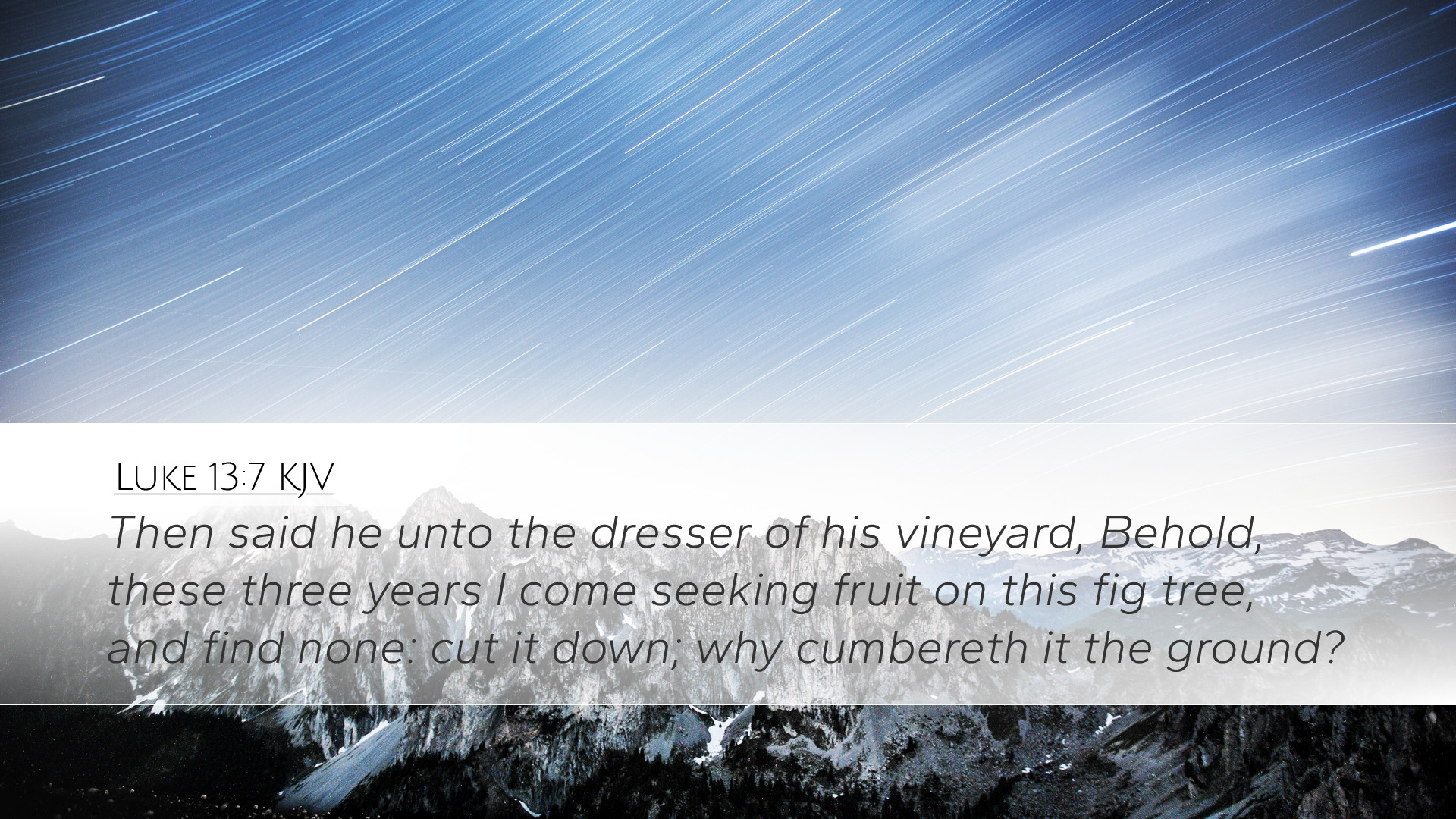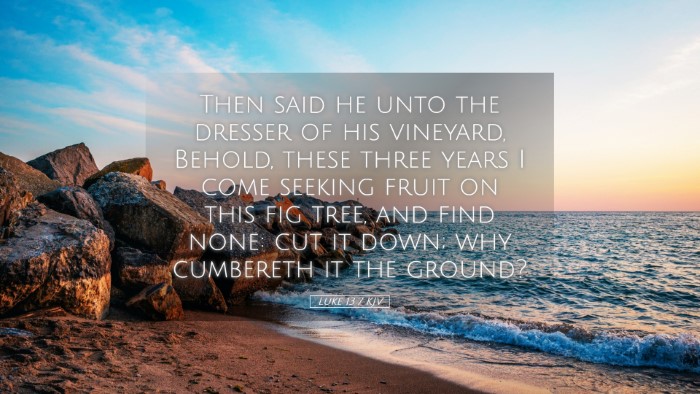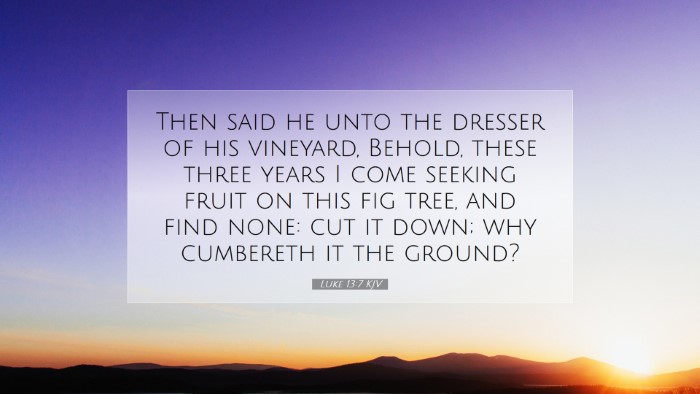Commentary on Luke 13:7
Luke 13:7 states: "Then said he unto the dresser of his vineyard, Behold, these three years I come seeking fruit on this fig tree, and find none: cut it down; why cumbereth it the ground?"
Introduction
This verse is part of a parable that represents God's expectations of His people and His patience towards them. It reflects the theme of divine judgment balanced by mercy and underscores the urgent call for repentance and spiritual productivity.
Exegesis of Luke 13:7
The context of this passage involves Jesus teaching about the need for repentance (Luke 13:1-5). The fig tree is a symbol often used in Scripture (e.g., Jeremiah 8:13; Hosea 9:10) to represent Israel and its spiritual state. The vineyard reflects God's people who have the privilege and responsibility to bear spiritual fruit.
Matthew Henry notes that the vineyard belongs to the Lord, and He has every right to expect returns from it. The imagery suggests a time of inspection following a period of grace, signifying the urgency for believers to examine their spiritual lives.
The Gardener's Plea
In this verse, the dresser of the vineyard represents Christ or a figure of mediating intercession. Albert Barnes elaborates that the gardener, seeing the lack of fruit after three years, intercedes for the fig tree to remain, illustrating Christ's role as an advocate for sinners. This highlights the depth of God’s patience and the grace offered before judgment is enacted.
The Significance of Three Years
The reference to three years is significant. Adam Clarke comments that this duration mirrors Christ’s earthly ministry, emphasizing that He has actively sought fruit during this time. The three years symbolize not only the patience of God but also the time given for spiritual growth and repentance. As the fig tree represents the people of Israel, it alludes to the unfruitfulness that characterized their spiritual state despite prolonged divine investment.
Spiritual Implications
This passage has profound implications for the spiritual condition of believers. It serves as a reminder that God expects fruitfulness from those who claim to follow Him. Matthew Henry emphasizes that everyone is called to be productive in good works and bear evidence of a living faith. The lack of fruit leads to questions about one’s connection to the vine, as Jesus states in John 15:5: "I am the vine, ye are the branches: He that abideth in me, and I in him, the same bringeth forth much fruit: for without me ye can do nothing."
The Call to Repentance
The urgency of the gardener’s plea brings forth a call to repentance. Luke 13:7 showcases that while mercy is present, there is also a limit to forbearance. The repetition of the appeal to “bear fruit” must not be overlooked as it conveys the idea that repentance is not merely emotional but requires actionable changes in one’s life. Albert Barnes reflects on how to cumber the ground is to be a liability and not a blessing, thus pointing out that a heart indifferent to spiritual things will eventually face dire consequences.
God's Justice and Patience
This verse highlights the balance between God's justice and His patience. After three years of seeking fruit—evidence of repentance and spiritual health—the gardener prepares to speak of judgment. God’s justice demands accountability from His people for the grace they have received. Yet, remarkably, the gardener seeks to prolong the opportunity for repentance before eventual judgment is executed (Luke 13:8). This duality of divine expectation and compassion should motivate believers toward fruitful living.
Application for Believers
- Self-Examination: Believers are urged to examine themselves for fruit. What evidence of spiritual growth is present in their lives?
- Awareness of Opportunity: Recognizing the time of grace and opportunity to change, believers are encouraged to seize moments to repent and recommit to a fruitful life.
- Awareness of Judgment: Understanding that God’s patience is not eternal but has purpose, prompting active engagement in spiritual disciplines.
Conclusion
Luke 13:7 serves as a solemn reminder of the necessity of fruitfulness in the lives of believers. The symbolism of the fig tree, the gardener’s intercession, and the divine expectation calls for a deeper understanding of one's relationship with God. Pastors, students, and scholars are encouraged to teach and reflect on the weight of spiritual productivity and the urgency of repentance in light of Christ's ongoing call to bear fruit in the Kingdom of God.


